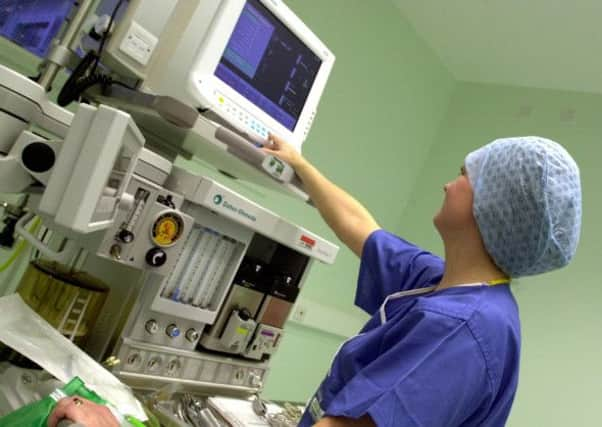Hospital criticised over faeces on equipment


A follow-up report at Borders General Hospital found blood and faeces on equipment in June, despite a report last year telling the board to take action.
But inspectors found improvements in other areas where concerns had been raised during the earlier inspection.
Advertisement
Hide AdAdvertisement
Hide AdPatient equipment was found to be contaminated on two wards inspected at the Melrose hospital, including faeces on a patient’s walking aid and four commodes.
Susan Brimelow, Healthcare Environment Inspectorate chief inspector, said: “One requirement relating to the cleanliness of patient equipment has not been met and has been made again. NHS Borders must address this.”
Evelyn Rodger, of NHS Borders, said: “While we are pleased the majority of requirements have been met, the findings of inappropriately cleaned equipment on the inspection day were unacceptable.”
Intensive care units ‘the source of infection’
THREE in every 100 patients treated in intensive care units in Scottish hospitals for more than two days last year developed an infection, a report says.
Health Protection Scotland (HPS) said healthcare associated infections (HAIs) in intensive care units remained at low levels in 2013. But the figures showed little change from the previous year with figures plateauing, experts said.
As a whole, three out of 100 ICU patients developed an infection while on their unit, with 1.6 per 100 developing ventilator associated pneumonia and 1.3 per 100 getting a bloodstream infection.
Rates of HAIs such as MRSA and Clostridium difficile across all hospital departments have dropped significantly, though have remained static more recently.
Dr Stephen Cole, consultant in intensive care medicine and chairman of the Scottish Intensive Care Society Audit Group, said: “Following significant declines in previous years, rates of HAI in intensive care units remain at a relatively low level.
Advertisement
Hide AdAdvertisement
Hide Ad“This reflects the importance attached at board, hospital and unit level to minimising harm and improving the quality of care in this critically ill group of patients.
“Future work will focus on how we can collect and analyse our data more effectively to identify opportunities for new approaches, such as identifying and targeting those patients most at risk of developing an HAI.”
Professor Jacqui Reilly, lead consultant in HAI at HPS, said: “Incidence rates of selected HAI in ICU in Scotland in 2013 are similar to those reported from 2012, which may represent a plateau.”